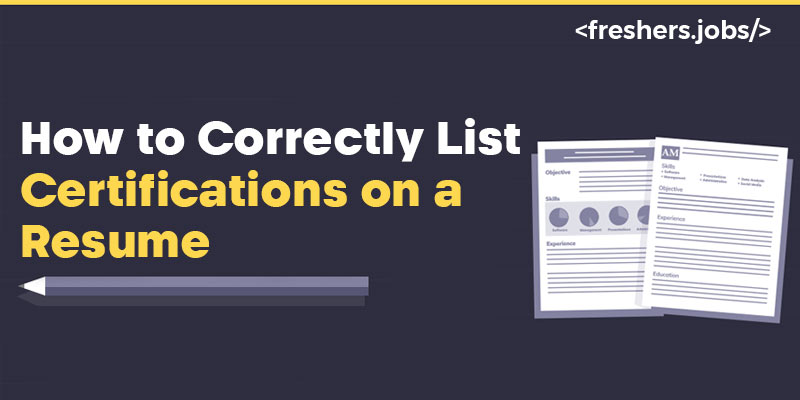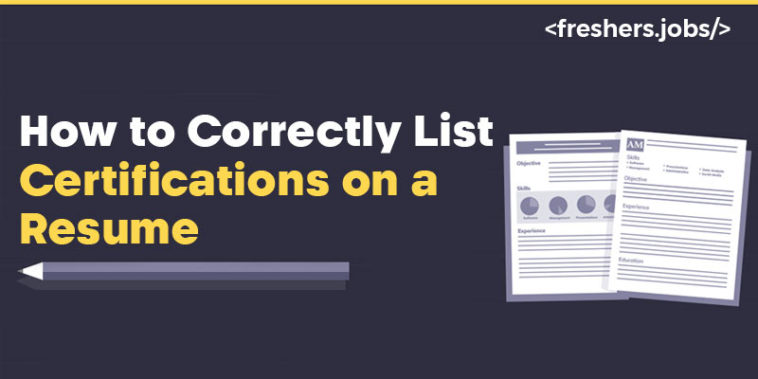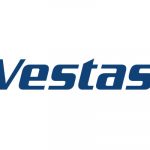Getting a certification shows you are dedicated and what you know and can do. Putting your certifications on resume list will make your job application stand out to prospective recruiters and set you apart from your peers. If you have one or more certifications, you will want to know when and how to list them on a job application and resume.
In this blog, we talk about certifications, show how to put them on a resume, and look at where to add the certifications to a resume.

Very first, let us know what are certifications?
Certifications are documents or certificates that both private and government organisations or boards have approved. Having one of these documents shows that you have a certain amount of work experience or are good at a particular skill.
Most professionals must pay a fee, meet specific requirements, and pass a test or examination to get certified. Because certifications are often hard to get and take time, people who have them are seen as more qualified for jobs and usually have a better reputation in their field.
How to list Certifications on the resume
There is always a perfectly structured standard way to list your certification in resume, even though every resume is different. Here are a few steps you can take to make a good list of your certifications.
Make Sure to list the Certifications Title
Put the full title of the certificate first in a separate section of your resume. Always use the same font and text size for this section as you do for the rest of your resume. This will make the whole document look good. Make sure that you type the right title for your certificate. It is also essential to write out any abbreviations so that hiring managers can understand what the award is for if they are unfamiliar with the specific resume certificate.
Always include the name of the Certified Institution
Please include the name of the institution or certification board that gave you the certification to show that it is accurate. Just like you should spell out the words of your certificates, you should also spell out any abbreviations so that employers can understand where you got your credentials. Putting the college’s full name makes it easy for potential recruiters to find out more about you if they want to.
List the date you earned the certifications
It is essential to put the date you got your certification on your resume because it shows employers how long you have had it. It is also necessary to include the dates you finished your courses so that recruiters can verify that you did attend any courses that led to certification. How to mention certification in resume? Employers can also tell if your credentials are still valid by looking at the date of your certification. If your certificates need to be renewed, include the date you did so the last time.
Always try to provide details about your skills
Even though it is not required, it might be a good idea to list any skills directly related to your certifications. HHow to add certification in resume? If you want to include any related skills or competencies, put them under the date you finished or when you think you will finish. So employers can see what makes you a good fit for the job you are applying for. Know the Best skills to include in your resume.
When to put credentials on a resume
Showing off your credentials can be an excellent idea, depending on the job you are applying for. But you might think of a few times when it might be essential to put certifications on your resume. Here are some times when you should list your certifications:
When an employer wants you to have specific certifications?
One of the most important times to put your certification on your resume is when an employer asks for it. Some employers might want you to have a specific certificate for a job and a list of certifications. In these situations, applicants must meet the requirements for employers to consider hiring them. Research the company and look at the job description before sending your application. Know How to research about a company? This will help you figure out if the employer needs any certifications.
To showcase industry knowledge
Putting your certifications on your resume is also an excellent way to show how knowledgeable or experienced you are. Before professionals can get many available certificates, they must work in their fields for a certain number of years. So, including your certifications on resume is an excellent way to prove how much experience you have and your confidence. You can learn how to be confident during Interview Process.
To showcase specific skills
In some cases, your certifications can help show recruiters that you have valuable skills or are in high demand beyond what the jobs alert are. For example, if you’re looking for a job as a project manager, putting your Project Management Professional or Six Sigma certification on your resume can help recruiters see you as a more reliable candidate. Sometimes, it is okay to list certifications that focus on skills. However, putting your certificates in your resume can help show how qualified you are.
If you have limited Experience
If you have the skills and knowledge needed for the job you want but need more hands-on experience, certifications can help you look more credible. If you have a limited amount of work experience, putting a certificate on your resume can show employers that you want to learn, take on challenges, and move up in your field. If you have little experience, consider including relevant certification in resume to show that you can self-evaluate and reach your career goals.
What are the certifications that can be included in your resume?
Depending on your field of work and specific qualifications, some certifications can help your resume. For example, it can be helpful to list nursing, medical assistant certifications, and other health care certifications in the medical field. Technology certifications are also an excellent way to show that you have professional experience in the technology field. You can also show off your skills and qualifications with business-focused credentials. Here are a few standard resume certificates that could be helpful.
- First aid and CPR certifications
- Human resources certifications
- Customer service certifications
- Language certifications
- Management and leadership certifications
- Sales and marketing certifications
- Software Training Skills Certifications.
Where to list credentials on a resume
You can put your qualifications resume in several places. This section will teach you the most common and focussed areas to list your certifications on your resume and job application.
1. In a section called “Certifications and Licenses,”
The first place you should talk about your resume certificate is in a section on your resume just for that.
Depending on how your resume is set up, you can add this section under Education or Skills. This section is often called “certifications and licences”.
Make sure to only list certifications and licences relevant to the job in this section so that recruiters can find them easily. Even if you have a lot of qualifications from different fields, the most important ones are those related to the job. This might mean you must change your resume for each job you apply for.
2. Alongside your name
Some certifications and licences have standard abbreviations that are well-known and understood in a professional community. For example, in the IT field, SDE stands for “Software Development Engineer.” If your certification falls into this category, you should put the abbreviation next to your name in the section of your resume that lists your contact information. This makes it easy for recruiters to see what certifications they have.
3. In the summary of your CV
How to mention certification in resume? In the professional summary section of your resume, it is a good idea to list relevant certifications to highlight your qualifications. This makes it easy for the recruiters to see that you have the proper training for the job, and it can also help automated systems recognise you as someone with the right qualifications.
4. Write a cover letter
Your cover letter is the last part of your job application, where you should talk about your certifications and licences. This is an excellent way to highlight your qualifications immediately in your job application for freshers jobs and explain how you have used those skills in your professional life. Finally, it makes automated systems that look for specific words in resumes to find yours.
Conclusion
I hope you are clear from the blog on how to list the skills on the resume perfectly. Skills on the resume are an important step that every candidate must follow. Having Certifications on resume will always be an added advantage that can impress recruiters. The best certifications can enlighten your job scope and get you into the best organisation. The Right Skills and Right certifications can land you into a dream job and impress your potential recruiter.



